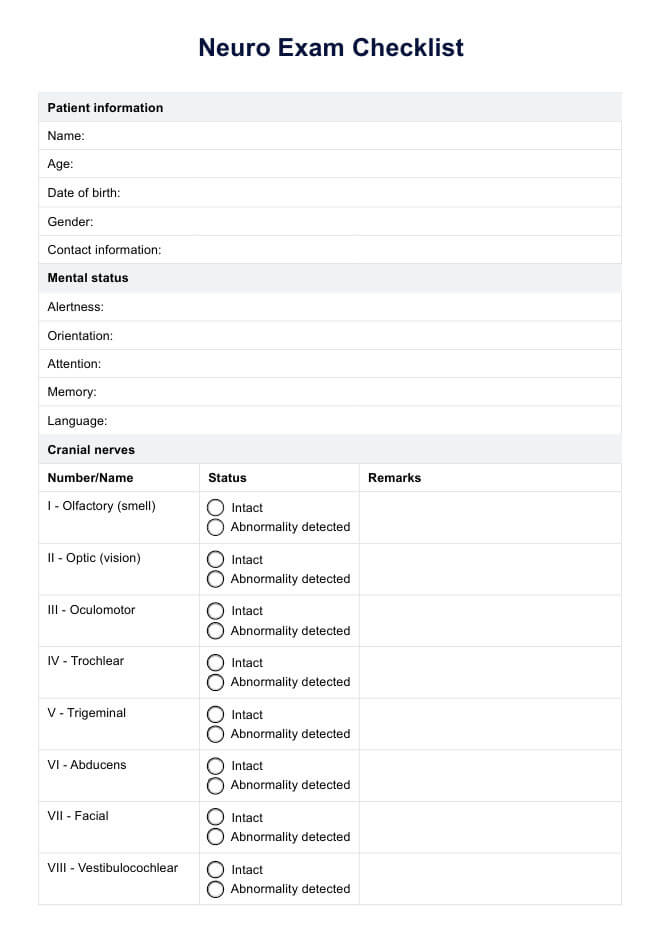A comprehensive neurological assessment typically evaluates the following seven components: mental status, cranial nerves, motor function, sensory function, reflexes, coordination, and gait. This assessment helps identify any abnormalities or deficits in the patient's neurological functioning and guides further diagnostic testing and treatment planning.

Neuro Exam Checklist
Streamline your neurology examinations with our comprehensive Neuro Exam Checklist Template, ensuring thorough assessments and efficient patient care.
Neuro Exam Checklist Template
Commonly asked questions
When documenting a neurological exam, it is essential to use clear, concise language and provide specific details about the patient's performance on each assessment component. The documentation should include the patient's level of consciousness, orientation, speech, and any abnormalities in cranial nerve function, muscle tone, strength, reflexes, sensation, coordination, and gait.
A normal neurological exam indicates that the patient's brain, spinal cord, and peripheral nerves function within the expected parameters. The patient should be alert and oriented, with normal speech and language skills. Cranial nerves, motor function, deep tendon reflexes, and coordination should also be normal.
EHR and practice management software
Get started for free
*No credit card required
Free
$0/usd
Unlimited clients
Telehealth
1GB of storage
Client portal text
Automated billing and online payments











